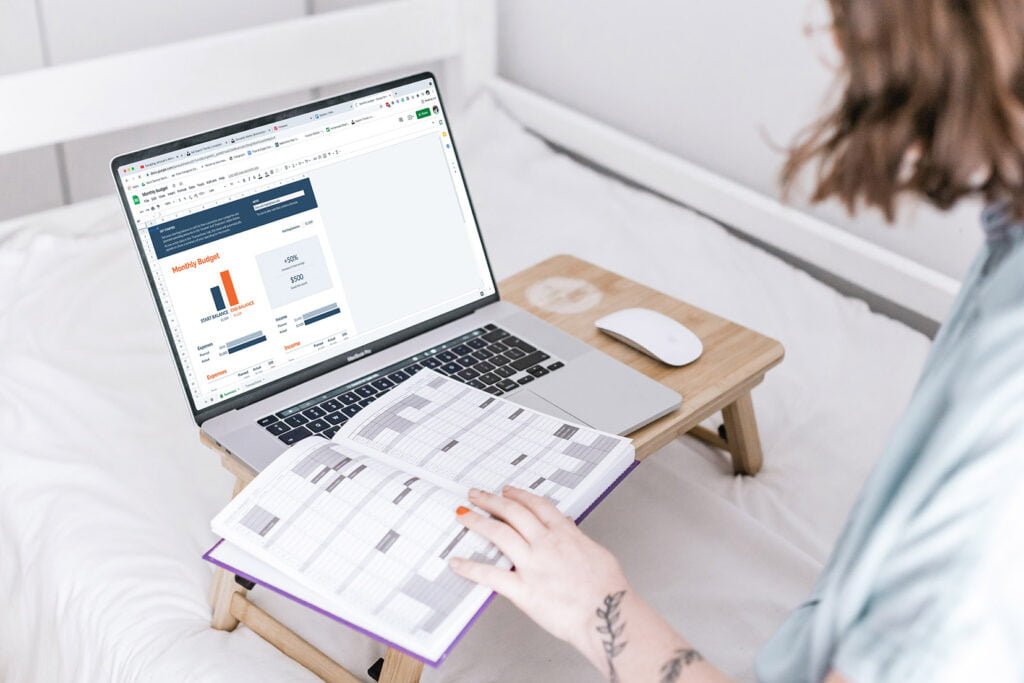CEOs and business owners often ask themselves: what is better for their company, a virtual or personal assistant?
The debate between a personal assistant vs. a virtual assistant has expanded to encompass all facets of modern business. But does it need to be a competition? Wouldn’t a personal and a virtual assistant satisfy the different needs of different companies?
Personal vs. Virtual: What is the Difference?
Before we can jump into the personal assistant vs. virtual assistant debate, we must define each term.
Personal Assistant
Personal assistants are, as the name suggests, an on-call personal assistant who works for executives to resolve menial, monotonous tasks that they are too busy to do. Things such as printing paperwork, filing documents, picking up mail, and satisfying the requirement for a physical presence are all in the purview of an on-call personal assistant. It is also convenient to get a hold of a personal assistant–you can call them or see them at work.
Virtual Assistant
Virtual assistants are remote workers. What does remote worker mean? A virtual assistant is not an on-call personal assistant you talk to daily. More often than not, your virtual assistant will be located outside your time zone in a country you are unfamiliar with. A virtual assistant is the best option for easing the business workload. Projects and assignments can be given to them with a set due date and left alone until they are due. Since virtual assistants can operate in different time zones, special considerations must be taken so that effective communication can exist.
The Benefits of a Personal Assistant
When it comes to a personal assistant in a personal assistant vs. a virtual assistant debate, there are a few things to consider. Personal assistants will be with you in the workplace, and having that level of closeness builds trust. You know your assistant can do the job you assign to them, and you can communicate with them during standard business hours while making them available to the entire team and company.
When they are on the clock, they become an on-call personal assistant. Anything you need to do, especially during crises or emergencies, can be delegated to the personal assistant as quickly as the calamity strikes. There is no waiting period, as the personal assistant is always there and ready to be involved with hours that you or the company have set for them.
The simplest way to imagine an on-call personal assistant is a button you carry and press when you need something done immediately.

The Benefits of a Virtual Assistant
Virtual assistants work from whatever office, residence, or country they may be in. How is this a benefit? Virtual assistants make their schedules, usually choosing hours for their lifestyle. They are not people you will see daily. You will need to decide on specific times to communicate with them through telecommunication.
While this may seem a disadvantage, it has the opposite effect. Virtual assistants make their own schedules but guarantee that they will be working for those hours. Professional virtual assistants have timers on their computers that pause the clock if they idle at the computer for whatever reason or step away to handle something.
This allows you to submit projects and assignments to the virtual assistant and set a timeframe for completion. This is usually a peace of mind factor in the debate between a personal assistant vs. a virtual assistant. You can submit five projects to a virtual assistant to ease your workload and give them a timeframe you’d like it to be completed. You have just cut your workload in half while guaranteeing the projects will be completed by, or sooner, than their expected due date.
Also, finding a virtual assistant is much more convenient than finding an on-call personal assistant for substantially less than personal assistant packages. Virtual assistants usually work through companies such as OkayRelax.com and will be certified in the field they are requested–rather than needing to be trained on the spot like a personal assistant.
Imagine a virtual assistant as a dropbox, where you drop off projects and pick them up in a few days completed.
Positives Wrap-Up
Let’s condense the positive qualities of both assistants.
Personal Assistants
- Have a physical presence in your workspace.
- Can be called to perform a service quickly.
- Can be delegated with menial tasks.
- Have accountability due to their physical presence.
Virtual Assistants
- Can work on larger projects, cutting the workload in half.
- Creates their schedule to maximize productivity.
- They are already trained in the field they are hired for.
- Cost significantly less than a personal assistant and function more as an independent contractor.
The Disadvantages of a Personal Assistant
The disadvantages of the personal assistant packages are the same as any physical employee. The personal assistant price is benefits, higher hourly wages depending on the state and complexity of work (even menial work), and the promise of advancement. Personal assistants make, on average, $30 an hour and are employees, not contractors. If their services are not needed for several months, they still are required to perform to the company’s standards. You will also need to be constantly aware of competitive benefits packages, pay, PTO (paid time off), and eventual advancement.
A personal assistant must also be interviewed, vetted, brought on board, and accounted for on the company payroll. Meanwhile, if the work becomes too menial and no skills are earned, the personal assistant may simply leave the company and find employment elsewhere, starting the process over again. This is especially true in companies where advancement is limited or far-and-few between. Employees want to succeed and grow and learn, which is commendable but presents a huge disadvantage for the company if they have a high personal assistant turnover rate. If a personal assistant is sick, that means no work will be done on their behalf, and productivity will suffer as a result.
The Disadvantages of a Virtual Assistant
While the personal assistant price is smaller with a virtual assistant, that does not exclude challenges with virtual assistants. For example, virtual assistants can be difficult to get a hold of. Time Zones, cultural differences, and just plain bad luck can halt productivity if a virtual assistant cannot be reached. While many professional virtual assistants pride themselves on an impeccable reputation and work ethic, accountability is difficult. Can you punish or reprimand a contracted individual out of reach?
The fear of the unknown is anxiety-inducing. Delayed responses to inquiries or production can instill concern, and while many virtual assistants try to keep methods of communication open, the unforeseeable can occur. This anxiety jumps back to accountability, as a virtual assistant is not an employee and has no established trust that a personal assistant would receive daily. There is also no way to contact the virtual assistant if their technology is knocked out during a storm–which is more common in some countries than others–and can bring productivity to a screeching halt.
Disadvantages Wrap-Up
Let’s condense the disadvantages of both personal and virtual assistants.
Personal Assistants
- An employee–and therefore expects benefits, advancement, and amenities afforded to a company employee
- Can not receive the necessary training for advancement, resulting in a turnover or delayed productivity
- Requires a lengthy interview, screening, and testing process to ensure the assistant complies with state and federal law (if in the United States)
- High hourly wage, with an expectancy of raises every year
Virtual Assistants
- Is a contractor–and therefore holds no accountability or loyalty to the company
- Lacks the bonds of trust associated with a daily face at the office
- They can be challenging to reach
- Requires inconvenient scheduling to work around your company’s time
- They are often located in different countries, leading to cultural differences in work ethic

Quick Summary
In the debate of a personal assistant vs. a virtual assistant, there are some key things to remember:
Personal Assistants
They are employees. They require benefits, advancement, and other amenities afforded to company employees. They establish trust with their presence in the office and alleviate the fear of the unknown by carrying accountability and ease of communication. They do not usually require special meeting times and can conform to the company hours assigned to them.
Personal assistants are expensive and often require extensive training that detracts from company productivity and advancement. They can also leave the company early or unexpectedly, restarting the hiring, training, and delegating process.
Virtual Assistants
They are independent contractors. They require no benefits, expect no advancement, and work around schedules they deem appropriate for their work. They often monitor their hours via programs on their computer that shut down when idle and can be given projects en masse with expected turnaround time. However, they lack accountability and often develop no personal connection with the team or company. Scheduling meetings for them is inconvenient and requires extra work.
They induce anxiety and fear of the unknown during lapses of silence. Productivity can be halted by their absence or lack of production, leading to more significant stress, workload, and morale penalties for the team and company.
They are much cheaper than a personal assistant and work by the hour rather than by salary. They also have skills and training appropriate to the field they are contracted to, alleviating the need to train them in company practices.
Which One is Best for You?
Considering everything we have gone over, we believe the virtual assistant is the best option for companies struggling with an excessive workload. While a personal assistant can assist in menial tasks and can be trained by the company to complete more complex tasks, the time and investment can hinder productivity and hemorrhage a company’s financial success. Virtual assistants are already trained and can begin work immediately on essential projects.
While some argue that the trust and personal connection established between an assistant in the debate of a personal assistant vs. a virtual assistant trumps productivity, the lack of formal training and the possibility of failed retention outweigh the positives of trust and accountability.
That being said, the anxiety of trusting your company’s productivity to an unknown source can sometimes outweigh effective productivity. Regardless of attempt, convenient meeting hours can be difficult for virtual assistants and their contractors. Remember to consider the broad picture and the direction you want your company to progress when deciding between a personal assistant vs. a virtual assistant.
Some key ideas to keep in mind when making your choice:
- Can you provide the expected benefits, training, and advancement required to retain a personal assistant?
- Will your company benefit from contracting its workload to virtual assistants connected through an agency?
- Productivity vs. Accountability: Can there be a compromise between them?
A Perfect Union
At OkayRelax.com, we have unified both options, ending the debate of a personal assistant vs. a virtual assistant. Our contracted virtual assistants are personalized to your needs, whether you are a small business, an entrepreneur, or a busy parent trying to catch a break. Our virtual assistants work with you to further your company goals, providing an easy-to-use online dashboard that monitors productivity and retains accountability for your virtual assistant.
Through us, you can find the perfect virtual assistant who will accept the task you delegate to them and return them to you in the timely manner you specify. After that, you can focus on more important matters, like growing your business and achieving your company goals. Every one of our assistants is screened and accountable, so the anxiety and fear of the unknown are alleviated.
If you have any questions, we encourage you to contact us here. Our team of knowledgeable agents is standing by to assist you by answering your questions that could not be answered in this guide. We also have a guide to help you find out which virtual assistant is the right fit for your company.
